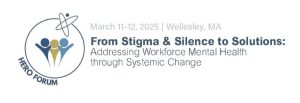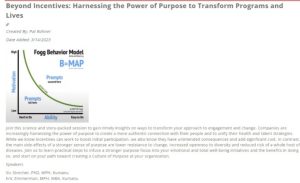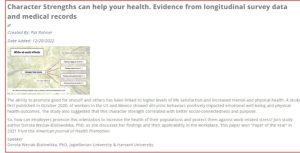November Brief
Outstanding. Passionate. Excellent. Incredible. Eye-opening. Awe-inspiring. Like-minded. Long-time friends. Thinking more deeply and differently. A true honor.
These are some of the words used by attendees to describe their experience at Forum24 last month in Baltimore. It is a true honor to be able to work with all of you as, together, we aim to make a positive impact. You remind us of why we do what we do, why we love what we do, and why it’s worth doing. And I’m grateful for the opportunity to work with such a passionate and committed group.
That’s why I’m excited to tell you about the next opportunity for us to be together, live and in-person! If you’ve been following closely, you know that HERO is testing a new meeting model in 2025. It will kick off in Q1 with Think Tank and Forum I, March 11-12, in Wellesley, MA. Read on for more details!
If you’re still processing all of the learnings from Forum24, or want to know what you missed, the Forum Proceedings are hot off the press. Thanks to HERO Senior Education Fellow Jessica Grossmeier for this huge contribution to the HERO library. You can also purchase the Forum library or individual sessions, with or without CE credits.
Our Forum24 theme focused on change and trust and belongingness. On December 3 – Giving Tuesday – people worldwide are coming together to tap into the power of human connection, strengthen communities, and change our world. Will you be one of them?
With gratitude,
Karen & the HERO Team
Member Updates
Giving Tuesday
HERO will be participating in GivingTuesday and we need your help! By joining the GivingTuesday movement, you’re proving that generosity can bring the whole world together in times of uncertainty.
Here’s how you can support HERO:
- Give. On December 3, visit our website and give.
- Match. Ask your employer if they will match your donation.
- Spread the word. Encourage your networks to join you in creating a real impact on December 3 by sharing what HERO’s mission means to you. Use the hashtag #GivingTuesday and tag HERO so we can share!
- Join HERO, or if you’re already a member join a HERO committee. HERO members gain the value of networking, innovative insights, and industry influence, and HERO gains industry expertise and experience. It’s a win-win.
HERO Worker Well-Being Clearing House
HERO has partnered with National Institute for Occupational Safety and Health (NIOSH) to create an open-source, publicly available database for de-identified data arising from use of the NIOSH WellBQ. As a first step in this process, HERO has made the NIOSH WellBQ available in an online survey platform for interested organizations to use. As a benefit, participating organizations will receive a summary report of their employees’ de-identified, collective data to better understand the health and well-being of their own workforce.
If your organization is interested, complete the organization registration form or contact HERO at WellBQClearinghouse@hero-health.org.
HERO Committees
What’s new with HERO Committees?
Interested in staying ahead of industry trends, contributing to published reports, and building strong connections with fellow professionals? As a HERO member, you can join a committee today! Here’s the latest update on our current committee activities:
- The Research Study Subcommittee (RSS) is reviewing articles for their next deliverable on Belonging in the Workplace. Next meeting will be in February 2025.
- The Workforce Mental Health and Well-Being Committee is organizing their next project around Storytelling (both personal and business), brain/mental health, psychological safety and the impact on business outcomes. Next meeting will be December 4, 2024.
- The People and Culture Committee is celebrating the completion of their latest project, a white paper titled Investing in People & Culture – What, Why and How? This committee will meet on December 3rd to begin their next project, which focuses on organizations that have implemented the tenets of their latest publication.
If you are interested in learning more or joining a committee, please contact Rocky.Davis@hero-health.org.
If your organization is interested, complete the organization registration form or contact HERO at WellBQClearinghouse@hero-health.org.
HERO Forum
What’s new with HERO Committees?
HERO will host two one-day Forums in 2025, beginning in March on the theme “From Stigma & Silence to Solutions: Addressing Workforce Mental Health Through Systemic Change.” HERO Research Fellow Colleen Saringer is creating a dynamic day full of thought leaders and case studies, plus HERO networking. Stay tuned for more details next month, but here’s a theme preview to whet your appetite.

Deaths of despair now permeate too many segments of our society. What role might employers play in confronting the inequities, stressors and mental health concerns that lead to such desperation?
It’s been said that we can’t “Yoga our way out” of a toxic work environment or culture. Companies are bringing more intentionality to mental health at work with solutions such as stigma reduction campaigns, resilience training, and mental health days. All of these strategies play a supporting role in promoting and protecting mental health, but they are not the main players in an upstream, preventive approach.
Healthy work cultures, environments and working conditions that address psychosocial job stressors and toxic practices not only enhance an employee’s mental and physical health,[2,3] they also improve productivity, reduce turnover and minimize conflict between colleagues.[3,4] On the other hand, the absence of systemic approaches can inadvertently contribute to and exacerbate an employee’s anxiety, depression, suicidal thoughts and, in extreme cases, death by suicide.[2-8] Some examples of psychosocial job stressors and toxic practices include meaningless work, under-use of skills, work overload, inflexible work schedules, poor relationships with superiors, interpersonal conflict, harmful work behaviors, lack of social support, bullying, harassment and microaggressions.[6,7,8]
In 2022, the US Surgeon General released a Framework for Workplace Mental Health and Well-Being,[2] and the World Health Organization published Guidelines on Mental Health at Work.[3] These were designed to support organizations in rethinking their responsibility to employees, specifically how to protect them from harm, foster a sense of connection, show them that they matter, make space for their lives outside work, and support their growth. Still, employees with fair or poor mental health report 12 days/year unplanned absences, compared to 2.5 days/year for all other workers. This translates to an estimated $47.6 billion annually in lost productivity, signaling an opportunity to focus on the work environment.[1]
This HERO Forum will feature organization leaders with success stories and lessons learned from the workplace policies, environmental supports, culture, and climate initiatives that have been shown to improve the mental health of employees.
References
-
Witters D, Agrawal S. The economic cost of poor employee mental health. Gallup Workplace. November 3, 2022. Updated December 13, 2022. Available at: https://www.gallup.com/workplace/404174/economic-cost-poor-employee-mental-health.aspx Accessed November 21, 2024
-
U.S. Department of Health and Human Services. Call to Action to Implement the National Strategy for Suicide Prevention. Washington, DC: U.S. Department of Health and Human Services; [year of publication]. Available at: https://www.hhs.gov/sites/default/files/sprc-call-to-action.pdf. Accessed November 4, 2024.
-
World Health Organization. Mental Health at Work: Policy Brief. Geneva, Switzerland: World Health Organization; 2022. Available at: https://iris.who.int/bitstream/handle/10665/363177/9789240053052-eng.pdf?sequence=1. Accessed November 4, 2022.
-
Aquino PG Jr., Jalagat RC Jr., Ahmed KA, Zakai SN. Employees’ mental health and productivity and its impact on contextual and task performance in organizations. J Adv Res Dyn Control Syst. 2020;12(08-Special Issue):708. doi:10.5373/JARDCS/V12SP8/20202573.
-
Bureau of Labor Statistics, U.S. Department of Labor, The Economics Daily, There were 267 workplace suicides in 2022 at https://www.bls.gov/opub/ted/2024/there-were-267-workplace-fatalities-by-suicide-in-2022.htm, accessed November 4, 2024
-
Rugulies R, Aust B, Greiner BA, et al. Work-related causes of mental health conditions and interventions for their improvement in workplaces. Lancet. 2023;402(10410):1368-1381. doi:10.1016/S0140-6736(23)00869-3
-
Peek-Asa C, Zhang L, Hamann C, Davis J, Schwab-Reese L. Characteristics and Circumstances Associated with Work-Related Suicides from the National Violent Death Reporting System, 2013-2017. Int J Environ Res Public Health. 2021;18(18):9538. doi:10.3390/ijerph18189538
-
Howard MC, Follmer KB, Smith MB, Tucker RP, Van Zandt EC. Work and suicide: an interdisciplinary systematic literature review. J Organ Behav. 2021; 43(2): 260-285. doi:10.1002/job.2519
-
Milner A, Witt K, LaMontagne AD, Niedhammer I. Psychosocial job stressors and suicidality: a meta-analysis and systematic review. Occup Environ Med. 2018;75(4):245-253. doi:10.1136/oemed-2017-104531
HERO Scorecard
Brain Health Best Practice Score: How Do Organizations Measure Up?
HERO Research Fellow Mary T. Imboden has published a new commentary from the HERO Health and Well-being Best Practices Scorecard in Collaboration with Mercer©. The commentary features the latest analysis on the new Brain Health Best Practice Score and highlights opportunities in the implementation, promotion, and evaluation of workforce health and well-being initiatives. Read on.
Karen Moseley had the opportunity to join leaders from A&O Shearman, Morgan Stanley, Southern Company, Shell, and GN Group for an insightful panel discussion on Business and Brain Health at the Science Summit during the 79th United Nations General Assembly. Thank you to the Business Collaborative for Brain Health, HERO’s Brain Health Partner, for leading the charge to elevate the importance of brain health within our workplaces and communities.
In this conversation, we explored how organizations are increasingly recognizing the importance of integrating brain health into business strategy. By prioritizing brain capital, we’re enabling companies to build stronger, more resilient teams. This focus on cognitive health ultimately leads to increased productivity and economic vitality, helping organizations achieve long-term success.
Watch the full discussion to learn more about how brain health is shaping the future of the workforce at https://businessforbrainhealth.org/resources/business-and-brain-health-science-summit-at-the-79thnbspunited-nations-general-assembly
New Benefits for Members in 2025
HERO Members:
We’re excited to announce NEW member benefits coming in 2025!
- 4 member Think Tanks. The best way to experience HERO is literally at the table at our Think Tank meetings, so we’re adding a 4th one for you in 2025! Here’s the 2025 line-up:
- March: “Women’s Health: Employers’ Role in Building Awareness and Equity – Everybody has a mom.”
- May: “AI: Perils and Promises for Health and Well-being”
- September: “Sustained Listening and What Happens Next”
- November: “Your Organization’s KPIs: What Role for Employee Health and Well-being”
- Journal subscriptions. Subscription access to the American Journal of Health Promotion and subscription discounts for the American Journal of Lifestyle Medicine.
Plus, all of the other benefits you gain by being a part of the HERO family.
HERO has been able to keep membership dues low and increases to a minimum, but current economic factors are prompting a 5% increase, effective April 1, 2025. Current members have the opportunity to renew your 2025 membership at the current rate, regardless of when your organization’s renewal date occurs. Contact pat.rohner@hero-health.org for more information.
Note: If you’re the primary contact for HERO membership and missed the Nov. 6th email announcement, please let us know so that we can ensure that you receive future notifications.
Not a Member?
If you want to be on the cutting edge for innovative solutions in employer well-being…
If you’re looking for learning and networking opportunities…
HERO brings together employers, providers, consultants and researchers to discuss complex issues and pursue evidence-based strategies that support a broad range of well-being issues.
HERO Hub Updates: New Content
HERO Hub Learning Series
This month’s featured topic is “Spiritual Well-being.” Here are just two of the 24 (and growing) resources on this topic available in the HERO Hub.
Would other members of your organization be interested in viewing these resources?
Don’t have a log in? Contact pat.rohner@hero-health.org.
Remember: member organizations receive an unlimited number of log-ins, so pass it along.
HERO Swag Store
With the arrival of chilly weather, check out the HERO Swag Store for all your cold weather needs! From sweatshirts and pullovers to vests and more, we have it all!
Members: Log in to the MEMBERS ONLY store for discounts on all HERO swag.
HERO RECOMMENDS
Resources and Readings
- Health Affairs: The Impact of the Election on Health Policy and the Courts. A deeper dive into the how the new political landscape will affect key health care programs and health care access.
- HBR: We’re Still Lonely at Work. Forum24 speaker Constance Noonan Hadley and Sarah L. Wright debunk myths about work loneliness and provide employer actions to create a culture of connection.
- Gallup: Despite Employer Prioritization, Employee Wellbeing Falters. Amidst troubling data about employee well-being, Hedrick et al provide three actions to help close the gap between employer strategy and employee experience. Also related: U.S. Employee Life Evaluation Hits New Record Low.
- How Diet-Health Misinformation Gets Ultraprocessed: Exposing Hidden Agendas and Distorted Narratives. A webinar symposium hosted by True Health Initiative. December 11 at 3:00-5:00 PM EST. Click here to register.


